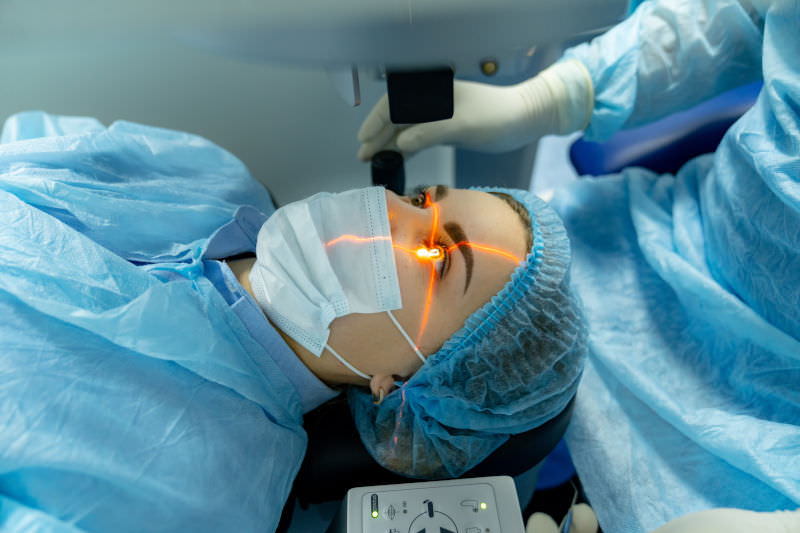Is the danger of vaginal mesh implants being downplayed?
For a number of years, vaginal mesh implants have been closely linked to severe health complications. Many patients fitted with them have reported extreme pain and suffered life-changing injuries. This led to their use being suspended in July 2018 in all but the most restricted circumstances.
Now, however, the National Institute for Clinical Excellence (NICE) has stated that vaginal mesh implants could be more widely offered on the NHS again once certain conditions have been met.
These conditions include:
- Ensuring all operations to fit the implant are conducted by specialist surgeons at specialist centres before a wider reintroduction.
- Creating a national database of the outcomes of all vaginal mesh operations
Although at present the suspension remains in place – and NICE’s new guidance is not binding on healthcare providers – NICE also commented that there is a “lack of reliable evidence on adverse events after surgery”, and that “the true prevalence of long-term complications following surgery with mesh is unknown”.
This has provoked anger from campaigners, who feel that the experiences of women affected by the implants are being ignored. Kath Sansom, founder of the campaign group ‘Sling the Mesh’, also described the new NICE guidelines as “weak” and that they “clear the way for the next generation of women to be harmed.”
In February 2019, the health and social care minister Jackie Doyle-Price acknowledged the clinical failures which the implants represented, and the Guardian reported that she now “urged” people who had suffered harm to pursue medical negligence claims.
The minister’s comments included the wider problems with the safety of medical implants. She stated that, in the past, regulation had “focused excessively” on “the commercial interests of businesses to maintain competition rather than having patient safety at its heart”.
If you believe you may have been fitted with a defective implant, whether it is a faulty unit or a design which is clinically unsafe, you should seek specialist advice from a medical negligence solicitor without delay. You may be entitled to compensation for the harm the implant has caused you.
Safety concerns over widespread surgical device
Several hospitals have withdrawn a surgical device from use called enFlow after concerns emerged that it could expose patients to dangerous levels of aluminium.
The enFlow device warms fluids to body temperature before they are infused into patients during surgery. Doctors at a German hospital found that certain solutions passed through the device contained aluminium levels which were hundreds of times over the recommended safe limit.
According to the Guardian, the Royal Manchester children’s hospital and Salford Royal have suspended use of the device for fear that high levels of aluminium could cause neurological damage in premature babies and young children.
However, the device remains in use in many hospitals around the UK, and although the Medicines and Healthcare Regulatory Agency (MHRA) has been investigating these concerns since January, there has been no official guidance provided to doctors.
Echoing Jacky Doyle-Price’s comments above regarding medical implants, Prof Andrew Klein, who published the report and is a senior anaesthetist at the Royal Papworth hospital in Cambridge, said:
“Medical devices come on to the market very easily and there seems to be very little oversight once they go on to the market. The burden of proof should be to show something is safe.”
However, the manufacturers of the device, Vyaire Medical, defended their device:
“Since its introduction and after millions of uses worldwide, we are not aware of a single incident in a clinical setting where aluminium was observed to have been transmitted to a patient in amounts above scientifically recognised safe limits nor have there been any reported adverse events related to aluminium toxicity”
Hopefully the MHRA’s investigation can establish whether patients are at risk from the enFlow device.
Missed targets for cancer treatment waiting times
A new report from the National Audit Office (NAO) has examined the waiting times faced by patients referred for cancer treatment. It found that, in November 2018, only 38% of NHS trusts met the government-pledged standards of a maximum 62-day waiting time.
Delayed referrals or misdiagnoses can be grounds for medical negligence claims if these failures cause someone to suffer greater harm than they would have done ordinarily. Early diagnosis and treatment of cancer can be a critical factor in a patient’s chances of recovery, and the report noted that the volume of referrals for suspected cancer has increased dramatically due to the “desirable choice to improve early diagnosis and survival rates”. To support this, the report cited that the number of suspected cancer referrals in 2017-18 was 94% higher than in 2010-11.
Unfortunately, higher volumes of referrals naturally lead to greater strain on the NHS. The NAO identified that the trusts which had difficulty meeting the waiting time standards also reported facing issues with capacity and a lack of staff, particularly in diagnostic services.
The report suggests the failure to meet these waiting time targets to be a relatively recent trend, with a decline in the past 5 years. Perhaps somewhat predictably, however, the report also notes that “it is hard to see how the NHS will be able to recover its position on waiting times in the near future without significant investment in staffing and infrastructure.”
If you would like specialist legal advice regarding any of the issues explored in this article, or if you believe you may have any other grounds for a medical negligence claim, please get in touch with Truth Legal to see if we can help.
Further Reading
From one of the UK’s most read legal blogs.









